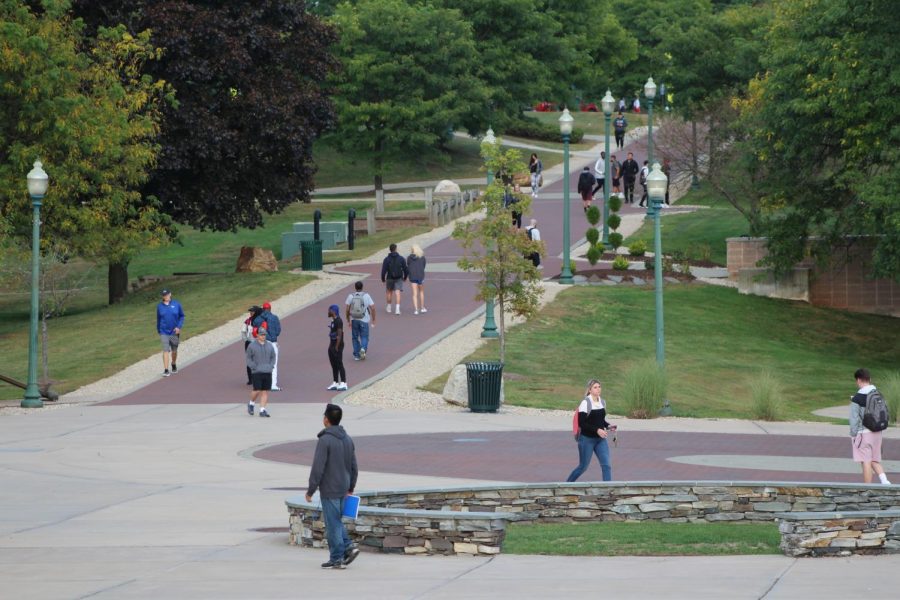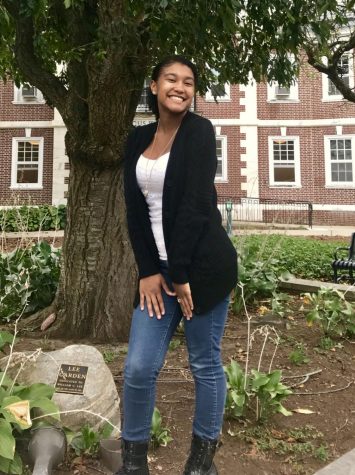Central’s Strategic Plan Is Being Reworked After Mixed Reviews
December 7, 2019
After months of developing Central Connecticut’s strategic plan for the coming decade, heavy criticism was received from the faculty and staff on the details, as many believed the draft needed to improve in specific sectors and language clarity.
The “Strategic Plan 2030: Changing Lives, Building Communities; Central to Connecticut” implemented by President Dr. Zulma Toro and working groups will “build upon these fundamental principles to provide an enriching student experience to the increasingly diverse 21st century population of Connecticut and beyond.”
“It’s important for us to be well positioned to respond to the changing landscape in higher education,” Dr. Toro stated. “It’s a way for us to come together as a team, a way to come together and be able to embrace a common vision for the institution, for us to share goals and aspirations.”
Dr. Toro hopes that with the new goals in the plan a foundation to achieve success in various aspects of the campus will be created, specifically in education and campus culture.
As of the now, the interim strategic plan, set in place in June 2017, targets four main goals: increase student enrollment, maintaining academic success, expanding community engagement, as well as develop additional sources for funding. Moving forward, the new strategic plan for 2030 will be primarily focused on five “bold goals” from the university that will develop and refine the campus.
These new goals, listed in order of importance, include:
- Enhancing academic excellence and preparing graduates to thrive in a changing economy
- Increasing access to higher education and ensuring student success
- Fostering an inclusive and safe campus culture that values and encourages individuals to participate in a free and respectful exchange of ideas
- Strengthening stewardship–advancing scholarship, service learning, and community development for the public good
- Elevating financial sustainability and prosperity
The Strategic Planning Steering Committee, University Planning & Budget Committee and other work groups have been creating this draft since Dec. 2018. In order to collect the input from various individuals on campus, a number of surveys, interviews and open forums were conducted.
While faculty and staff gathered during a forum to review the new completed draft of the strategic plan, many came forth expressing critical assessments of where they believed there was room for improvements.
One of the issues being the lack of acknowledgement towards sustainability efforts. As part of the President’s Advisory Council for Environmental Sustainability’ (PACES) at CCSU, Dr. Charles Button was hoping for detail on ways the university would implement long-lasting, environmental plans.
“Back in 2007 the campus signed onto the American College and University Presidents Climate Committee. That commitment that our president [at the time] signed onto set three goals and I would like to suggest that they remain part of the campus’s goals because we have not removed ourself from that commitment,” Button stated.
Button noted that some of these goals included reducing the amount of greenhouse gases produce on campus by 50 percent by 2025 and becoming carbon neutral by 2050, which he believes should be reinstated into the strategic plan for 2030. PACES also drafted other suggestions that they would like to see added to the strategic plan addressing their concerns for campus sustainability.
Other questions also were brought forth, such as regarding reduction in budget while simultaneously increasing class sizes and drawing attention to campus safety.
Although some of those in attendance “felt supported” by the new plan and found the goals to be achievable to reach by 2030, which is based on a social media survey conducted during the forum, there was an understanding that changes needed to be implemented moving forward.
While Dr. Toro and the working groups continue to tweak the the strategic plan, which will be reviewed by the Board Of Regents in Feb. 2020, Dr. Toro remains hopeful that the new plan will bring forth success to the university but was honest in saying it may not appease everyone.
“Thinking that every single recommendation will be part of the strategic planning, I don’t know if that will happen [but] everything will be considered and we will try our best,” Dr. Toro stated. “We are trying our best to put together a plan that commits some individuals in them middle because at the end, we cannot have 100percent of what every one of us wants. That’s the challenge.”







